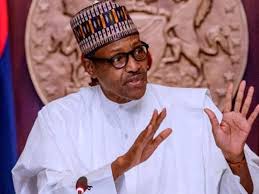Terrorism and the forthcoming crisis: What Future for Yoruba and Southern Nations?

Terrorism and the forthcoming crisis: What Future for Yoruba and Southern Nations?
By Akin Ajose-Adeogun
An Analysis of the Unfolding Tragic Events in Nigeria
1. The Situation
Powerful elements within the Federal Government and foreign players are responsible for an Islamist insurgency that has spread to the South from Central Nigeria. Its purpose is to realise an old transnational Fulani agenda of Islamic revivalism and territorial expansion, which has been given urgent impetus by climate change, food insecurities, development and environmental challenges in the Sahel region of West Africa.
2. The North
The powerful Islamist elements within the Federal Government are determinedly committed to this policy of fulfilling, in its entirety, Othman dan Fodio’s vision, and no amount of pleading or negotiations will halt it.
Most of the North’s intelligentsia are either enthusiastic supporters of this policy or are indifferent to it. The Northern proletariat are enthusiastic about it and see rich pickings in a conflict with the South.
They have long prepared for this conflict and have seized all the institutions of the State, including the Army, which is really no more than the mercenary force it was in the days of Lugard, when its mandate never exceeded the preservation of the interests of those in power.*
2. The South-West
The response of this pivotal region to this existential threat is hampered both by the namby-pamby character of the average Yoruba and by the blatant careerism of their opportunistic leaders, who have no aspiration other than to secure advancement for themselves.
The reforming wing of the intelligentsia and the proletariat, Awolowo’s constituency, would like to oppose the Fulani menace but are confused and do not have any real leadership nor real clue about what to do about it.
*As for the conservative wing of the Yoruba intelligentsia, this pathetic, decadent, lowest form of humanity, have traditionally chosen to make alliances where they see the greatest opportunity of personal aggrandisement. In the evolving crisis, they can be expected to trim their sails to every breeze and exuberate in platitudes.*
For the aforementioned reasons, the South-West is likely to collapse in short order before any Fulani onslaught, like France in June 1940.
4. The North-Central
Opportunistic self-interest and insecurity have traditionally characterised the approach of the leaders of this region. Although the values of the Christian communities of this region are similar to those of the South, they had a vested interest in preserving the power and privileged position of the North, for, with the relatively meagre educational qualifications of their intelligentsia, and their limited human and natural resources, they could rise much higher than if they were left to compete with Southerners on a level playing field.
The leaders of its Christian communities, who have suffered terribly at the hands of Fulani militias in recent times, are not unaware of the existential threat to their way of life. But, unfortunately, they have been reduced to a state of dithering indecision and their people have been left disorganised, rudderless, powerless, and confused in the face of the Fulani onslaught.
5. The South-South
This region, which has primarily sustained the Nigerian Federation since the advent of oil and gas as the major exports of the country, has suffered the most neglect of any region.
From the advent of the Second Republic, it has been the most reliable ally of the Fulani, in the vain hope that its fortunes would thereby improve.
Today, the region, having gained nothing but ruthless exploitation and contempt at the hands of its erstwhile Northern allies, seethes with justified anger as strong separatist currents surge and boil in restless and sporadic violence.
Because of this, the region is probably the most ready, psychologically and militarily, to confront the Fulani menace. Furthermore, the region has within its grasp the ability to significantly strike at Nigeria’s Achilles heel.
Like most of the South and Middle Belt, the disadvantage that this important region faces is in its self-serving leadership, with its propensity for putting personal interests before communal interests.
6. The South-East
*This region has traditionally been the headache of the Fulani hegemonists. It is the real bulwark of the South against the encroachments of the marauding Fulani. The region has not been more effective in the past in containing the rampages of the Fulani hordes because of the alienating, self-centred policies of its leaders, who failed to appreciate the broader responsibilities that nature had thrust upon the shoulders of a people described by the late Felix Houphouet-Boigny as the “rearguard of high intelligence and ability” in the face of “the southward movement of the Muslim and Arab peoples of West Africa.
The region, with its formidable people and powerful and influential diaspora, is in the best position to quickly build up its potential massive strength into a most formidable force.
Once again, like the rest of the South and Middle Belt, its handicap is a decadent, self-serving leadership.
7. Conclusion
*It is ultimately with the South-East, actively supported by the South-South and the reforming wing of the South-West intelligentsia and proletariat, that the reactionary elements among the Fulani aristocracy must reckon.
*If I may rephrase Churchill’s famous 18 June 1940 speech (“Their Finest Hour”), “What was called the Battle of Yorubaland is over. I expect that the Battle of the South-East and South-South is about to begin. Upon this battle depends the survival of secular Southern Nigeria and Northern and Middle Belt Christian civilization.
Upon it depends our own Southern way of life, and the long continuity of our institutions and our societies. The whole fury and might of the enemy must very soon be turned on us.
*The Fulani know that they will have to break us in the South-East and South-South or lose the war.
*If we can stand up to them, all Nigeria may be free and the life of its peoples may move forward into broad, sunlit uplands.
But if we fail, then the whole of Nigeria, including all that we have known and cared for, will sink into the abyss of a new Dark Age made more sinister, and perhaps more protracted, by the lights of perverted science.
*Let us therefore brace ourselves to our duties, and so bear ourselves that, if Nigeria last for a thousand years, men will still say, ‘This was their finest hour.’ “


